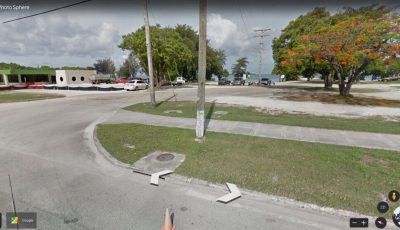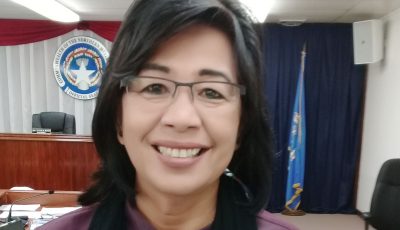OPA finds DPL noncompliant with public law
Audit notes potential underpayment of lease revenues and collection
An independent audit by the Office of the Public Auditor on the Department of Public Lands showed that DPL is noncompliant with Public Law 15-02, which requires the creation of a DPL Operations Fund, and that it is unable to produce reliable and relevant financial information.
Deloitte and Touche LLC, which audited DPL’s financial statement on years ended Sept. 30, 2018 and 2017, also noted potential underpayment of lease revenues and collections on invalid permits and leases.
The audit is available on the OPA website at www.opacnmi.com.
The auditor recommends that DPL be made to comply with P.L. 15-02 and to monitor and reconcile with Department of Finance in a timely manner and establish monitoring controls over disbursements.
P.L. 15-02 requires the creation of the DPL Operations Fund, which shall be maintained by the Department of Finance. It requires all revenues received by DPL to be deposited in the fund, and all operational expenses of DPL to be paid from the fund.
The auditor recommends that DPL performs periodic reconciliations with Finance to verify the accuracy and completeness of disbursements processed and reconcile account balances maintained in the Finance ledger.
The auditor also recommends that DPL management update lease contracts and permits and enforce lease provisions.
In DPL’s response to the auditor’s findings, DPL Secretary Marianne Concepcion-Teregeyo said DPL has obtained the Office of the Attorney General’s advice regarding DPL’s compliance with P.L. 15-02.
Concepcion-Teregeyo said that, according to the OAG, compliance with P.L. 15-02 entails Finance assuming all of DPL’s accounting functions, which they will have to discuss with the newly appointed Finance secretary.
Concepcion-Teregeyo said DPL is now in the process of devising a transition plan that ensures an orderly transfer.
She said it is a standard procedure of DPL to reconcile against the general ledger maintained by Finance.
She said payroll expenditures and cash disbursements to vendors are reconciled monthly to ensure that they are all legitimate and belong to DPL.
Concepcion-Teregeyo said standard operating procedure has been established to ensure it is strictly implemented in order that all financial transactions are processed effectively and efficiently.
She said all payroll timesheets and payment vouchers submitted to Finance for payment processing are certified by the DPL Finance director, approved by the DPL secretary and approved by Finance and accounting director prior to processing payments by the Treasury Office.
Concepcion-Teregeyo said payments to vendors made by Finance are reconciled and reimbursed every 15th and at the end of each month and thereafter.
She said checks received from Treasury Office are also reconciled to ensure they are accurate.
She said payroll expenditures are reimbursed bi-weekly based on the report provided by the CNMI payroll and is reconciled against DPL schedule.
Concepcion-Teregeyo said all payroll adjustments and supplemental check requests are verified by the DPL finance director and approved by her, with all supporting documents.
The auditor found that DPL has not maintained a separate general ledger system since fiscal year 2017.
Specifically, the auditor determined that revenues received by DPL are not deposited in the DPL Operations Fund and that a general ledger for DPL transactions is maintained by Finance but it is not reconciled or monitored by Finance or DPL.
The auditor found that cash transactions received and disbursed at DPL are summarized in cash receipt and cash disbursement journals, which are not recorded in the Finance’s general ledger.
The auditor said journal vouchers posted to Finance’s general ledger by Finance personnel are not approved by DPL management.
The auditor said receivables, accounts payable, accruals and unearned revenues are not reconciled in Finance’s general ledger.
The auditor said adjustments to record DPL transactions in Finance’s general ledger were recorded by DPL through proposed audit adjustments.
Those things happened, the auditor said, because compliance with P.L. 15-02 is not enforced and that monitoring and timely reconciliation of transactions with Finance is not performed.
The auditor said DPL did not implement available system controls over the financial reporting process and there is no established monitoring control procedures to determine the accuracy and completeness of disbursements processed at Finance.
The auditor noted that the lack of compliance with P.L. 15-02, the lack of reliable and relevant financial information, and the inability to detect errors and inaccuracies were already reported as a finding in the audits of DPL in fiscal years 2010 through 2017.
With respect to the lease of public lands, the auditor’s test of 88 cash receipts for long-term lease contracts and temporary permits noted that audited financial statements were not provided for nine receipts related to contracts and permits requiring such documents.
The auditor found that financial statements were not provided for five receipts related to contracts and permits requiring such documents.
The auditor found that business gross receipt tax returns were not provided for seven receipts related to contracts and permits requiring such documents.
The auditor said the cause of those conditions is the lack of monitoring procedures to determine which contracts and/or permits require audited financial statements, financial statements and business gross receipt tax returns.
The auditor said monitoring procedures for contracts and/or permits that require financial statements or audited financial statements, a schedule of gross receipts, and the filing of authorized permits were already reported as a finding in the audits of DPL in fiscal years 2010 through 2017.
In DPL’s response to lease contracts and temporary permits, Concepcion-Teregeyo said with respect to nine receipts, DPL recommends that, upon the extension or renewal of the lease for those lessees whose assets are less than $500,000, they should not be required to submit financial statements audited by U.S. certified public accountant.
Concepcion-Teregeyo also recommends that the 45-day term for submission of the audited financial statement must be changed to 90 days to give ample time for the company to perform its audit and submit it in a timely manner to avoid audit citations.
With respect to five receipts, the secretary said per the company, audit is delayed due to Super Typhoon Yutu, and the two companies’ audit is not yet done and will submit once it’s done.
On seven receipts, she said two companies closed their business, and one submitted its business gross revenue returns late.



























